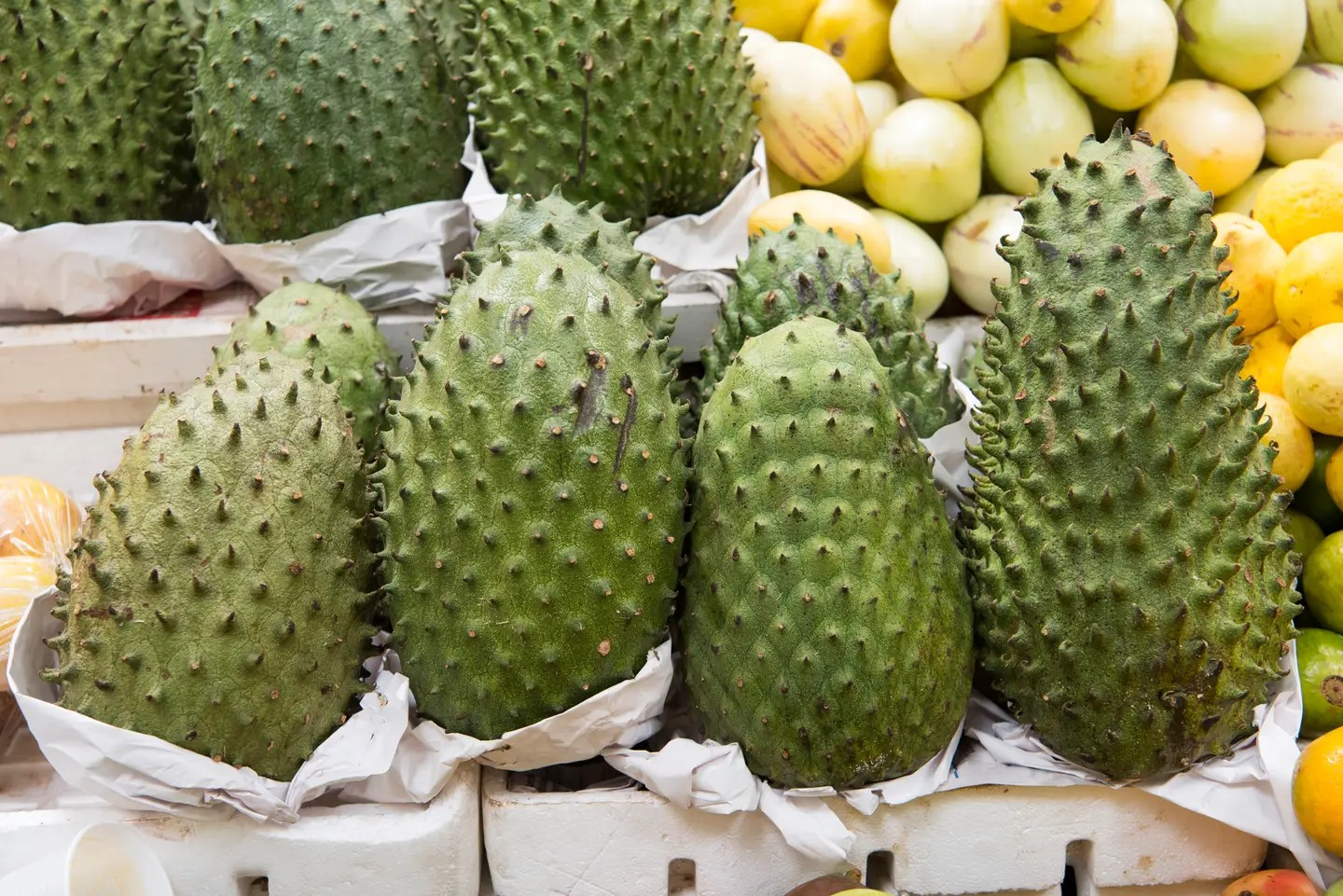Physical Address
304 North Cardinal St.
Dorchester Center, MA 02124
Physical Address
304 North Cardinal St.
Dorchester Center, MA 02124

Soursop, also known as graviola or guanábana, is a tropical fruit that has garnered attention for its potential health benefits, particularly its purported anti-cancer properties. Despite promising laboratory studies, the mainstream medical community remains cautious, leading some to believe that the true potential of soursop is being overlooked.
Laboratory studies have indicated that soursop contains compounds with anti-cancer properties. Research has shown that it has anti-diabetic, antiviral, and anti-inflammatory properties. It’s often touted as a cancer treatment. Studies in test tubes and on animals have shown some potential in treating cancers of the breast, prostate, liver, lung, pancreas, colon, and skin.
However, it’s important to note that these findings are preliminary. The majority of studies have been conducted in vitro (test tubes) or on animals, and there is a lack of clinical trials involving humans. As a result, there is no conclusive evidence to support the efficacy of soursop in treating cancer in humans.
Soursop is native to the tropical regions of the Americas, including the Caribbean, Central America, and parts of South America. The fruit thrives in warm, humid climates and is now cultivated in various tropical regions worldwide.
The fruit is large, heart-shaped, and covered with a spiky green exterior. Inside, it boasts a creamy white flesh that is both aromatic and flavorful. The taste is often described as a delightful blend of strawberry and pineapple, with subtle citrus undertones and a creamy texture reminiscent of banana or coconut.
Beyond its potential health benefits, soursop is enjoyed in various culinary applications. It’s commonly used to make juices, smoothies, ice creams, and desserts. In many cultures, both the fruit and its leaves are utilized in traditional medicine practices.
Despite the promising preliminary research, the medical community advises caution. Without human clinical trials, the safety and efficacy of soursop as a cancer treatment remain unproven. Some experts also warn of potential neurotoxic effects from compounds found in the fruit, which could lead to movement disorders if consumed in large amounts.
This cautious stance has led to speculation among some individuals who believe that the potential benefits of soursop are being deliberately downplayed or suppressed, possibly due to its natural properties that cannot be patented. However, it’s essential to approach such claims critically and rely on evidence-based information when considering alternative treatments.
While soursop presents an intriguing area of study in the quest for natural cancer treatments, it’s crucial to recognize the limitations of current research. The absence of human clinical trials means that we cannot conclusively determine its efficacy or safety as a cancer treatment. As always, individuals should consult with qualified healthcare professionals before considering alternative or complementary therapies.
For those interested in exploring natural health further, you might find our article on Bee Pollen: Nature’s Superfood to Fuel Your Body for the Fight Against Oppression insightful.
If you’re interested in trying fresh soursop, it’s available for purchase through various online retailers and specialty markets.
We encourage readers to share their thoughts and experiences. Please leave your comments below and join the discussion.